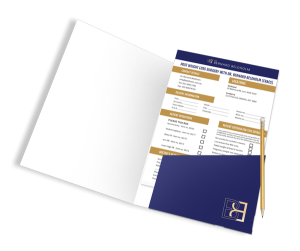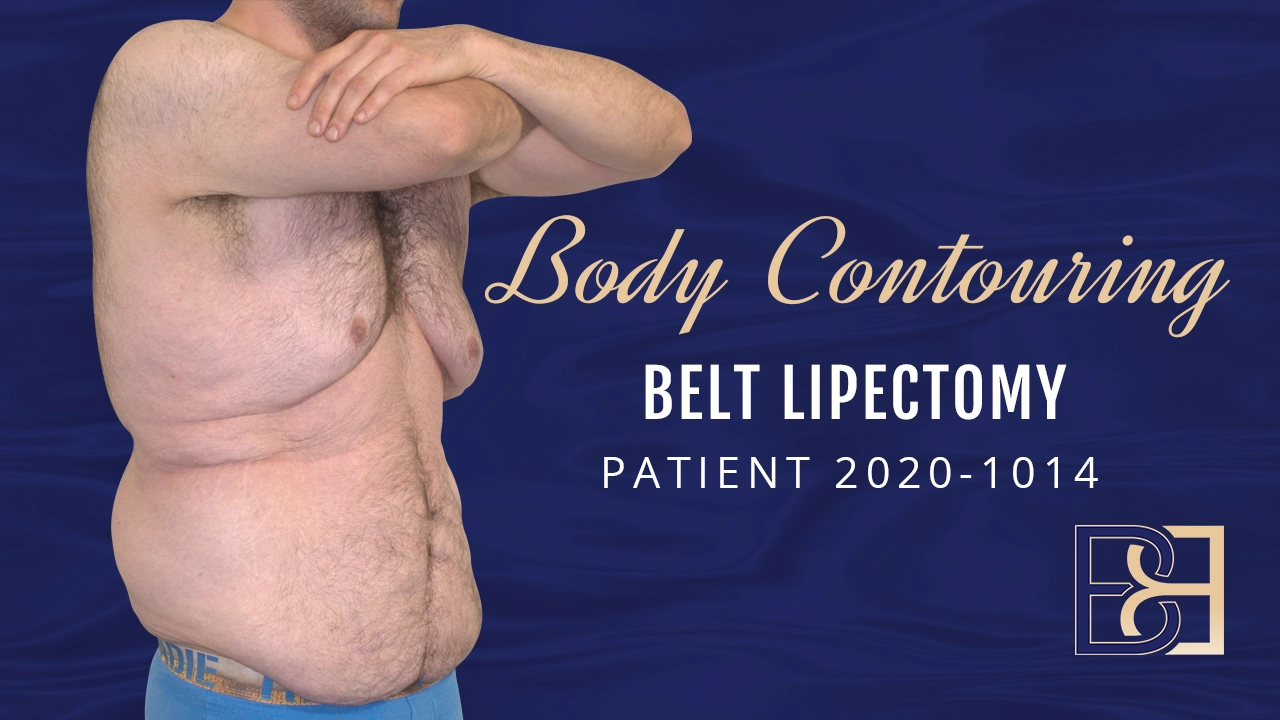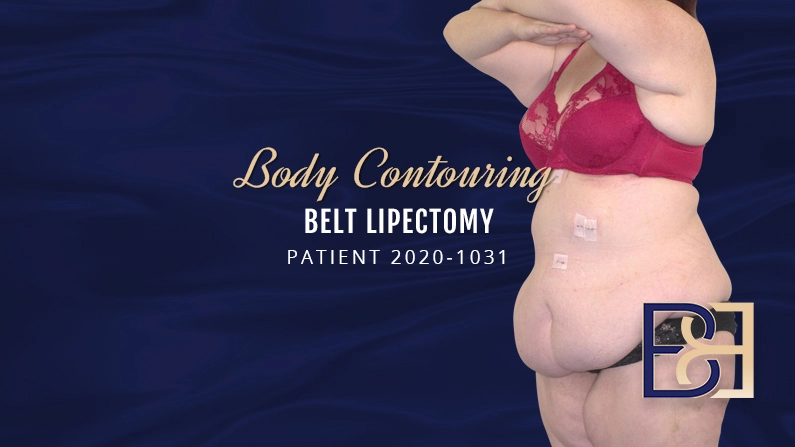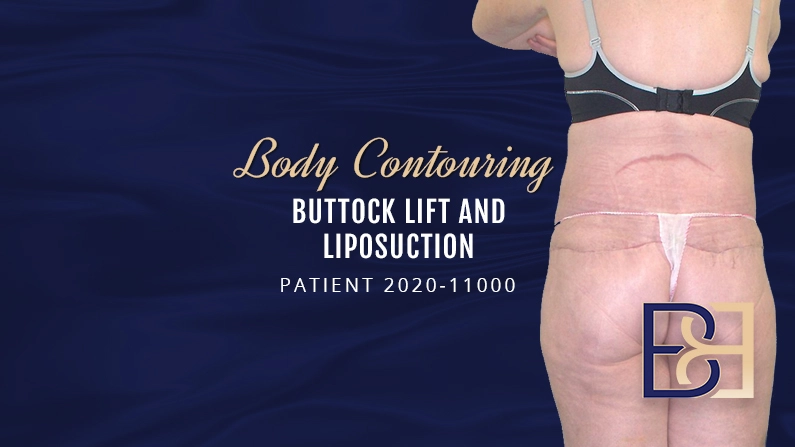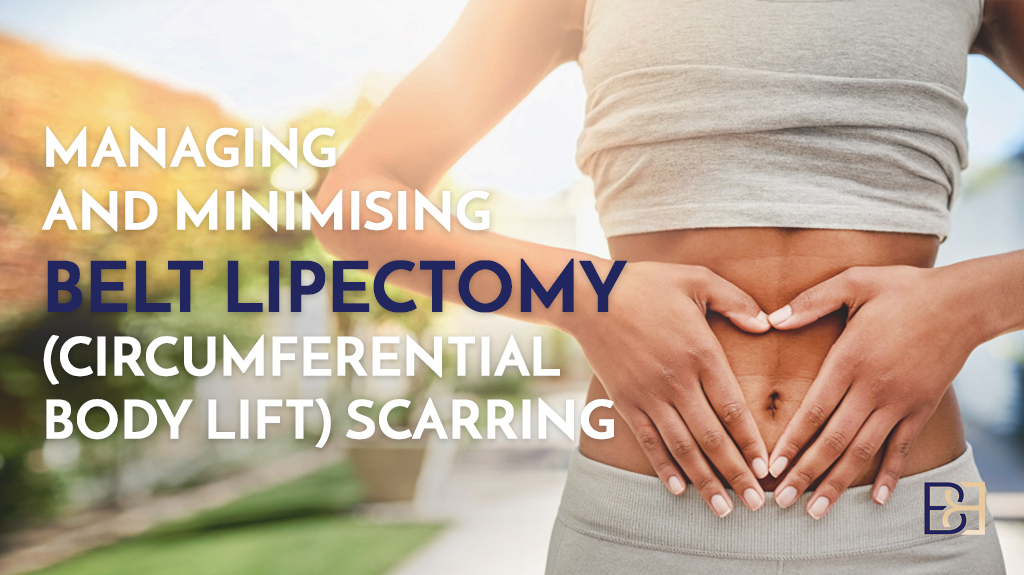A side effect of weight loss, loose buttocks (glutaeal ptosis), cannot be resolved with a basic diet and exercise plan. If this is the case for you, a gluteoplasty (also known as a buttock lift) may be the solution. If this is the case, a gluteoplasty (also known as a buttock lift) may be necessary.
In this article, Dr Beldholm explains what a gluteoplasty (buttocks lift) can and cannot do. He reviews why some weight-loss patients may require a gluteoplasty (buttock-lifting surgery), what to expect during the operation, and the results to expect. If you consider gluteoplasty after weight loss, many of your questions will be answered in today’s blog post.
What is a Gluteoplasty (Buttock Lift)?
This section explains what a gluteoplasty is, the pros and cons, and how it compares to other buttock treatments.
A buttocks lift is also known as gluteoplasty or a glutaeal lift. It is done to tighten the skin on your buttocks after weight loss. This surgery also helps reduce excess skin on the thighs and the hips, to some degree. Doctor Bernard surgically removes and tightens the excess skin through an incision on your lower back. As the incision is closed, it lifts your buttocks to a higher position and tightens the skin. As a buttocks contouring procedure, Doctor Bernard also performs suction-assisted lipectomy (commonly known as liposuction) to remove fat (adipose tissue) and shape your glutaeal region, waistline, and hips. After recovering from surgery, the buttocks look more lifted.
What Causes Glutaeal Ptosis (Loose Buttocks)?
When you lose weight, it is distributed throughout the entire body. Your buttocks are no exception. When a person gains weight, excess fat causes the skin to stretch until it is tight, often bursting at the seams. Skin can only stretch so much before it loses elasticity. When a person is overweight, their skin is firm and “snaps” back into place when pinched. Skin that has stretched out looks lax and deflated after losing weight.
Who is a Candidate for Gluteoplasty?
Reaching a healthy weight is a great accomplishment. Unfortunately, fat loss leaves some people with glutaeal ptosis. You may experience skin folds that cause discomfort, depending on the amount of fat you lose. If you find the loose skin cosmetically displeasing or irritating, you may be a candidate for gluteoplasty.
It’s essential to achieve a healthy weight before undergoing surgery. If you haven’t reached your goal weight, give it time. Losing weight is a significant contributor to the development of loose skin. You don’t want to fix your lax skin now, only for more to occur later.
To qualify for body contouring surgery, you must meet certain criteria. Some health conditions may prevent you from having gluteoplasty surgery, such as obesity or a history of stroke. If you’re a smoker, you will need to quit first. Nicotine is proven to delay healing and increase the risk of complications.
What Can’t Gluteoplasty Do?
It’s important to have realistic expectations of what gluteoplasty can and can’t do. Doctor Bernard’s gluteoplasty surgery lifts and tightens the buttocks, but it won’t add volume or make your buttocks bigger. Instead, it makes your bum look more proportional.
If you’re looking for larger buttocks, gluteoplasty is not going to give you that. To make your buttocks bigger without surgery, you either need to gain weight or muscle. Buttock implants, injections, and fat grafting can also increase its size. Those procedures can be risky, however, so Doctor Bernard does not offer them. He does not specialise in making the buttocks bigger; his focus, instead, is on making your buttocks, waist, and sides contoured and shapely.
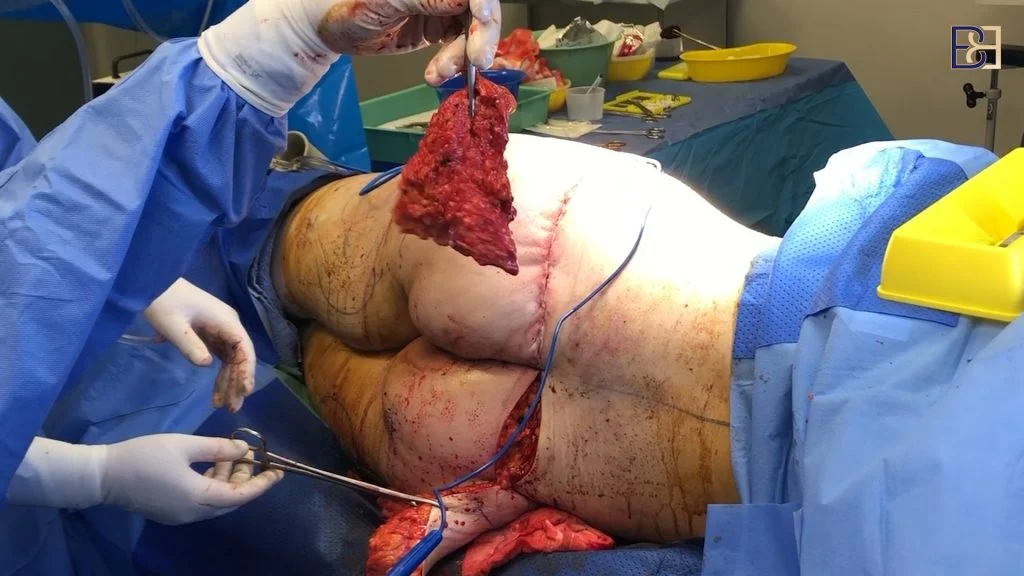
Operation Guide: Gluteoplasty Step-by-Step
Phase 1: Surgical Prep
This is what to expect when you arrive at the hospital.
1. Surgical Markings
Before surgery, Doctor Bernard meets you in the anaesthetic bay at the hospital. He will draw markings on your skin. The markings help him plan the surgery. If you have any questions before heading into the O.R., he will take the time to review your concerns.
2. Anaesthesia
Gluteoplasty is performed under general anaesthesia. Sedative drugs are administered through an IV. You will drift off to sleep as you lie down on the operating table. A team of nurses and an anaesthetist oversee you for the entire surgery. Once you are sedated and intubated, the operation can begin.
3. Body Positioning
You will be placed on your left side on the operating table. This provides access to your left buttock, waist, and sides. Doctor Bernard operates on one side at a time. Once the left side is complete, you will be turned to your other side.
Phase 2: VASER Suction-Assisted Lipectomy (Commonly Known as Liposuction) of the Buttocks, Waist, and Lateral Thighs
First, Doctor Bernard does extensive liposuction to contour your buttocks, waist, and sides. The goal is to achieve a slim, proportional look. Your individual anatomy and aesthetic goals guide him in determining how much fat to remove. Fat reduction is done to reshape your buttocks and sides. It also helps reveal muscle tone that is hiding beneath the fat.
What is VASER Suction-Assisted Lipectomy (Liposuction)?
VASER is a high-def liposuction device that melts fat cells using pulsed ultrasonic energy. Once melted, the fat is easily removed with suction. The treated area looks noticeably slimmer, and the results are long-lasting.
Benefits of VASER Suction-Assisted Lipectomy
VASER does more than reduce fat. Better lifting and tightening of outer thigh skin are possible when VASER is performed during Gluteoplasty. VASER also helps partially dissect the tissues, making it easier to remove any excess skin that may be present later in the surgery. VASER is also less invasive than traditional Suction-Assisted Lipectomy, resulting in a shorter and less complicated recovery.
How is VASER Performed During Gluteoplasty?
VASER is a three-step process.
Wetting Solution
A wetting solution is injected into the target fat. It contains adrenaline, which helps to reduce bleeding. You can expect pain relief for 12 to 18 hours after surgery.
Fat Melting
Doctor Bernard moves a handheld probe in a back-and-forth motion under the skin surface. Ultrasound energy is transmitted through the probe. This liquefies the fat until it is the consistency of hot butter.
Fat Removal
At this stage, the VASER has melted all of the fat. To remove fat, a machine-powered suction tube is used to extract it from your body. Because the fat has been liquefied, it is simpler to remove, causing less damage to blood vessels than traditional liposuction.
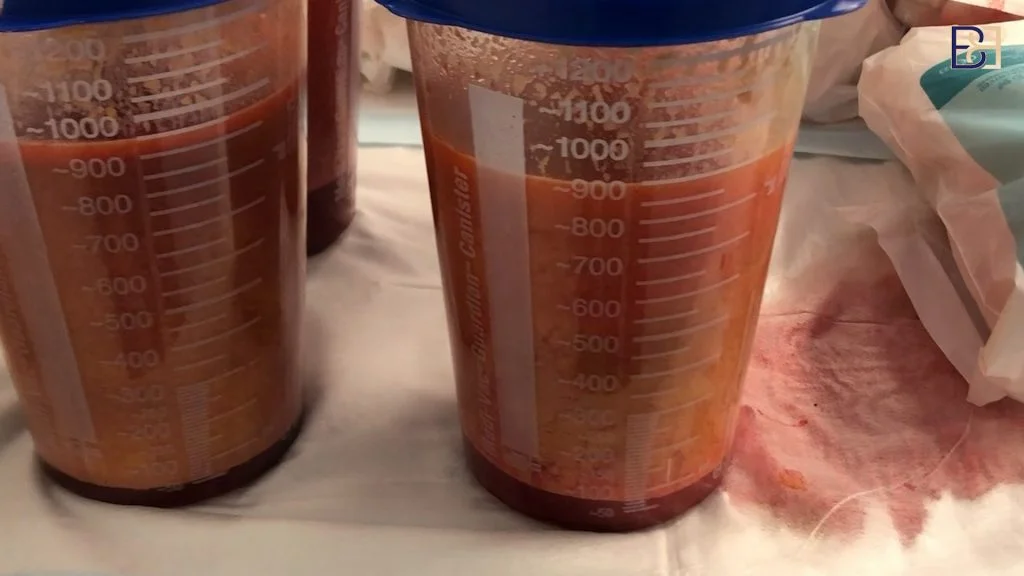
Phase 3: Gluteoplasty Cannula Selection and Fat Aspiration
This part of the operation corrects loose skin on your buttocks and thighs.
Skin Removal
After the VASER lipo is done, Doctor Bernard makes a horizontal incision on your lower back. The excess skin is elevated and trimmed off. He works in sections, about 10 to 15 cm at a time. During the operation, Doctor Bernard seals each blood vessel he sees. This lowers the risk of uncontrolled bleeding and haematoma.
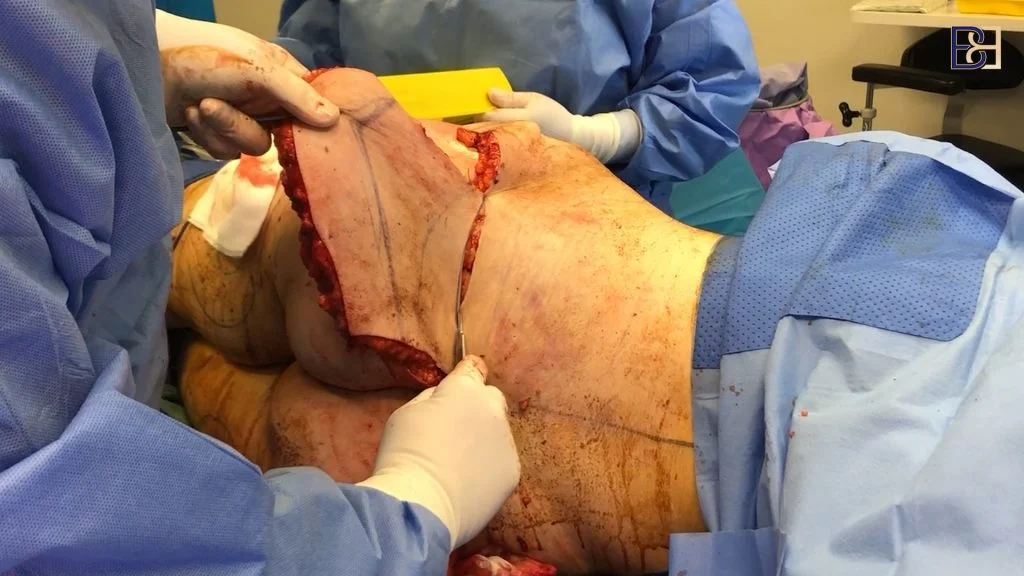 Incision Closure
Incision Closure
Closing the incision takes time. The incision is closed in layers. Doctor Bernard also uses medical-grade tissue spray glue to seal the layers further. The glue closes all the empty spaces in your tissues to reduce the risk of seroma and haematoma in recovery. He closes the incision tightly initially because there is a lot of swelling. As the swelling subsides in the next few months, your tissues will relax.
Drains and Dressings
Drains are hollow tubes inserted into your skin to remove fluid buildup. Doctor Bernard will remove the drains in a few days. Sterile dressings are applied to keep your incision clean and protected.
Recovery
Although you will still need to take some time off work and daily activities, Gluteoplasty has a relatively short recovery time compared to other body contouring procedures, such as abdominoplasty. Most patients can get back to the gym in six weeks. During recovery, Doctor Bernard may ask you to wear a compression garment to relieve swelling and inflammation.
Book your appointment online now
Consultation
Choosing to have surgery after weight loss is a big decision. Doctor Bernard wants to help you make the right choice for you.
When you come in for a consultation, Doctor Bernard will help you decide if a Gluteoplasty (buttocks lift) is right for you. You can schedule your visit when you are close to your weight loss goal. If you have small fat pockets that won’t go away with diet and exercise, don’t worry. He can easily eliminate small fat bulges during any body contouring surgery. Choosing to have surgery after weight loss is a big decision. Doctor Bernard wants to help you make the right choice for you.
What Happens During the Consultation?
During your initial visit, Doctor Bernard will listen carefully to your concerns. He will examine your buttocks to determine if gluteoplasty is the right approach. He will assess the extent of loose skin, discuss your cosmetic goals, and answer all your questions.
Planning Your Post-Weight Loss Surgery
During your consultation, Doctor Bernard will create a personalised surgical plan tailored just for you.
Why Work on the Abdominal Area First?
After massive weight loss, you may have loose skin on several body parts. Skin removal surgery after massive weight loss is done in stages. If you have excess skin on your abdomen, it is a good place to start.
Conclusion
Doctor Bernard’s gluteoplasty procedure aims to balance your proportions and reshape your body after weight loss. It can help your buttock area, waistline, and sides look more shapely, tight, and toned, but it will not make your buttock area bigger.

